 Giuseppe Verdi |
SATURDEE OPRY
LINKS |
 Giacomo Puccini |
 Giuseppe Verdi |
SATURDEE OPRY
LINKS |
 Giacomo Puccini |
|
Saturdee Opry
Links # 139: Ukraine Edition P.S.
Saturdee Opry Links is/are posted. I would be lying if I didn't admit that the savagery being perpetrated by Putin was still not on my mind, in making the selections. First is the overture, "Queen of Spades," by Tchaikovsky, who was a Ukrainian at heart. As we know, the queen of spades is the death card. I tried to steer things into a lyrical, upbeat mode, but after the first two attempts, slid into more tender, poignant fare. Farewell tributes to two wonderful sopranos who died a few days ago. . .a sorrowful essay by a forgotten basso moustachio(!). . .Rossini in Yiddish!. . .Neil Shicoff's extraordinarily moving performance of "Lensky's aria". . .a plea for peace from Verdi and Maria Callas. . .two utterly knockout duets (really). . .Mario del Monaco removes your socks. . .and two extremely touching, gentle Ukrainian encores. Listen carefully to all, or continue sitting on your thumb, if you prefer. https://www.chairish.com/product/3434801/1980-the-thumb-surrealist-print-hand-signed-by-salvador-dali Saturdee Opry Links Overture! Tchaikovsky, "Queen of Spades." 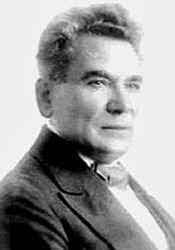
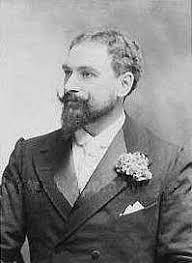
 Joseph Winogradoff Pol Plancon Mario del Monaco 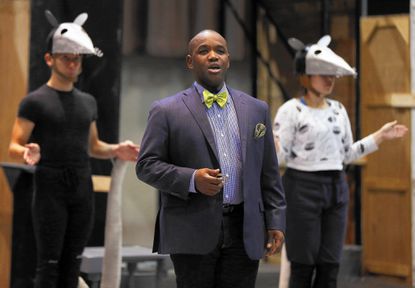 Laurence Brownlee (and mice)
2.
.jpg) https://www.youtube.com/watch?v=cIQjnJqNuU8 Setting: an army camp site in a valley in the Swiss Tyrolese Mountains, 1815 Synopsis: After Tonio has been made a member of the French Grenadiers, he approaches some of the members and explains that he has joined the regiment because he loves the regiment's adopted "daughter," Marie. He asks the entire regiment for her hand in marriage, and permission is granted. He sings of his unbridled joy over his bride-to-be. Translation: http://www.aria-database.com/search.php?individualAria=783 ANNND. . .how it can look on stage, with Javier Camarena. Oh, if only all armies sang and danced! Wars could be fought this way. https://www.youtube.com/watch?v=F7UF-q2QkvM 3. This one goes out to all the innocents---men, women, children, animals, and ecosystem---being maimed, slaughtered in Ukraine because of maniac Putin. And that includes the brainwashed, stupid young Russian soldiers whose lives are being thrown away on this horror. This is "Pace, Pace, Mi Dio," or "Peace, peace, My God," from Verdi's "La Forza del Destino." The soprano is Maria Callas. https://www.youtube.com/watch?v=pqbRqA5tXUM Setting: Outside the cave where Leonora has come to live out her remaining days in repentance. Synopsis: Leonora calls for peace from God for her tortured soul. She still loves Alvaro after so many years, and the horrors that have happened. She calls upon God to end her suffering. Translation: (scroll down) https://www.opera-arias.com/verdi/la-forza-del-destino/pace-pace-mio-dio/ ANNND. . .If you wish to see how it can look performance, here is Leontyne Price, still with us at 95. With English subtitles. https://www.youtube.com/watch?v=cOSj8J6JxGE About the opera: https://en.wikipedia.org/wiki/La_forza_del_destino
4.
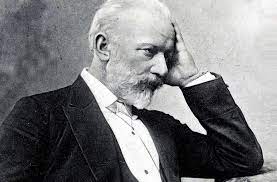 https://www.youtube.com/watch?v=HavZY7vUMyY Setting: a stream near a mill at dawn, St. Petersburg, Russia, late 1700s Synopsis: The night before, Lensky challenged Onegin to a duel in response to Onegin's advances on Lensky's fiancee, Olga. Now, on the morning of the duel, Lensky looks back on his happy youth as he waits for Onegin to arrive. He realizes that he will probably die in the duel and that he does not particularly care if he does. The only great loss in his death would be that he would never see Olga again. Translation: http://www.aria-database.com/search.php?individualAria=1222 About Tchaikovsky's roots: 5. 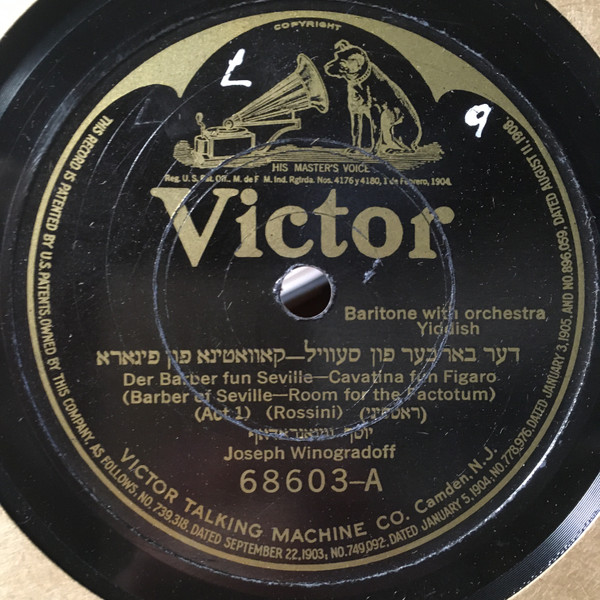 In 1874, at the age of 8, Joseph Winogradoff sang with a cantor in a professional chorus in Vilna, Lithuania, in the Russian Empire. Graduating from the Vilna conservatory in 1884, he went to larger Odessa, in Ukraine, to seek his lucky break. No luck, no break, so he moved to Moscow. One problem: Winogradoff was Jewish. Many a night, the young baritone wandered the streets of Moscow, dejected over the anti-Semitism that hindered his progress---and prevented him from legally living in Moscow at all(!). One who dared to teach him was the famous French baritone, Jean Lasalle (Vive la France!) and this led to the young man filling in for an indisposed baritone in a local production of Verdi's "Il Trovatore." Thus he was given a permit to remain in Moscow for six months. From there, he performed with small companies, was finally hired by the Russian Imperial Opera---and toured Europe. Eventually the great baritone became well established---his skills apparently overriding his being Jewish, ahem---and toured Russia, Europe, and eventually, the United States. In the USA, the man felt free enough to become a cantor, and appear in Jewish theater. He emigrated to Palestine in 1934, dying there in 1936. Here he is with the famed comic aria, "Largo al Factotum," ("I am the topman of the town") from Rossini's "Barber of Seville"---but with a twist that would not have been appreciated in Moscow: it's in Yiddish! Figaro-kele! https://www.youtube.com/watch?v=cVyYreVKkpY Translation: http://www.aria-database.com/search.php?individualAria=30 More: https://en.wikipedia.org/wiki/Largo_al_factotum
6.
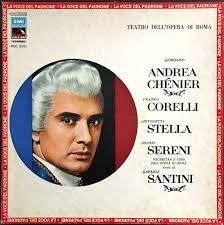 https://www.youtube.com/watch?v=cLChEavwVWU Synopsis: Act 4. . .St. Lazare Prison. . .The poet, Andrea Chénier, awaits his execution with his trusted friend, Roucher, writing verses of his faith in truth and beauty. Roucher leaves, as a revolutionary sings the Marseillaise outside. Maddalena, Chenier's beloved, enters for a last meeting with him. She bribes the jailer, Schmidt, to let her change places with a condemned noblewoman. The lovers sing about their love and their deliverance from this world after death. As dawn approaches, Schmidt calls their names. They go to face the guillotine joined in love, and faith that they lived righteously. While they leave, Chenier's friend, Gérard, appeaars with a paper in his hand, with the sentence "Even Plato banned poets from his Republic", written by Robespierre to reject Gérard's plea for Chenier's life. Translation: Obituary: https://operawire.com/obituary-legendary-soprano-antonietta-stella-dies-at-92/
ANNND. . .Here is footage of Ms. Stella with the
great Mario del Monaco in the same duet.
SOL EXTRA! Arrivederci, Antoinetta Stella. https://www.wikiwand.com/en/Antonietta_Stella 7.
"The great" is a cliche, yes. It has also come to be
trivialized by people referring to their cronies (and also, relative
nobodies) as "the great." But it should have meaning independent of
these detriments, and it is well merited for the English mezzo,
Josephine Veasey, who died Feb. 22 at 91. Ms. Veasey assayed a
variety of roles, but versatility was not her major feature. Rather,
she was a specialist in Wagner, Berlioz (not too many Berlioz
specialists, I wouldn't think), Richard Strauss. (I fondly remember
an old recording of Beethoven's 9th conducted by Erich Leinsdorf,
which featured (I think) Ms. Veasey, Martina Arroyo, Placido
Domingo, and Sherril Milnes.) Some mezzos are also sopranos, and
some are just mezzos all the way. Veasey was the latter. Here is a
splendid, moving rendition of "Adieu, fiere cite" ("Farewell, proud
city") from Berlioz's "Les Troyens."
https://www.youtube.com/watch?v=bEeUBzqRiuERole: Didon, Queen of Carthage and sister of Anna (also known as Dido) Setting: Didon's rooms, Carthage, around 1200 BC Synopsis: After her love Enée has left her along with the rest of the Trojans, Didon is filled with overwhelming grief. She now wants only to die. Translation: FRENCH: Adieu fière cité, qu'un généreux effort Si promptement éleva florissante! Ma tendre soeur qui me suivis, errante; Adieu, mon peuple, adieu! Adieu, rivage vénéré, Toi qui jadis m'accueillis suppliante; Adieu, beau ciel d'Afrique, astres que j'admirais Aux nuits d'ivresse et d'extase infinie; Je ne vous verrai plus, ma carrière est finie. ENGLISH: Farewell proud city, what a generous effort So promptly grew up flourishing! My tender sister who followed me, wandering; Farewell, my people, farewell! Farewell, revered shore, You who once welcomed me suppliant; Farewell, beautiful African sky, stars that I admired To nights of drunkenness and infinite ecstasy; I won't see you again, my career is over. Obituary: http://operascotland.org/person/9605/Josephine+Veasey https://operawire.com/obituary-mezzo-soprano-josephine-veasey-dies-at-91/ 8. One more for the late Josephine Veasey. Although it was late in her career (1974), putting her mezzo together with Monserrat Caballe in the "Mira O Norma" duet from Bellini's "Norma" is one of those moments that makes you think humans might have seriously redeeming qualities. Might. Chiefly having to do with art, music, literature. This is exquisite. https://www.youtube.com/watch?v=NlZ3XV1-1VE Translation: https://www.opera-arias.com/bellini/norma/mira-o-norma/ Synopsis: Norma looks at both of her sons, who are asleep. She considers killing them. Advancing towards them with knife upraised, she hesitates. (Recitative: "Dormono entrambi ... non vedran la mano che li percuote" / "They are both asleep ... they shall not see the hand which strikes them.") But she cannot bring herself to do it: (Aria: "Teneri, teneri figli" / "My dear, dear sons") The children wake up and she calls for Clotilde, demanding that Adalgisa be brought to her. The young priestess enters, concerned at how pale Norma looks. Norma makes her swear to do everything she asks and, upon her agreement, tells her that she is entrusting the two children to her care and states that they should be taken to the Roman camp to their father Pollione, a man who she hopes will make a better lover for Adalgisa than he was for her. Adalgisa is aghast. Norma: "I beg you for his children's sake." (Duet, first Norma: "Deh! con te, con te li prendi" / "Please, take them with you") Adalgisa tells her that she will never leave Gaul and only agreed to the request in order to do what was good for Norma. (Duet, Adalgisa: "Vado al campo"/"I'll go to the camp") In the duet, Adalgisa agrees to go to the Roman camp and tell Pollione of Norma's grief; her hope is to persuade him to return to Norma. She then renounces Pollione: (Duet: "Mira, o Norma" / "Look, o Norma") About the opera: https://en.wikipedia.org/wiki/Norma_(opera)
9.
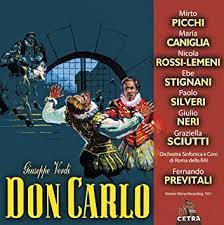 https://www.youtube.com/watch?v=vtvebFhD5i4 Synopsis: Act 4 [This is Act 3 in the 1883 revision] Scene 1: Dawn in King Philip's study in Madrid. . . Alone and suffering from insomnia, the King, in a reverie, laments that Elisabeth has never loved him, that his position means that he has to be eternally vigilant and that he will only sleep properly when he is in his tomb in the Escorial (Aria: "Elle ne m'aime pas" / "Ella giammai m'amò"). Google Translate: I can still see her, silently gazing at my white hair, the day she arrived from France. Where am I? These torches are consumed... the dawn silvers these stained-glass windows, here is the day! Alas! healthy sleep, sweet sleep has fled my eyelid forever! I will sleep in my royal mantle, when will he last for me. I will sleep under stone vaults from the vaults of the Escurial! If royalty gave us the power To read from the bottom of the heart where only God can see everything! If the King sleeps, betrayal is brewing, They rob him of his crown and his wife FRENCH: Je la revois encore, regardant en silence mes cheveux blancs, le jour qu'elle arriva de France. Où suis-je? Ces flambeaux sont consumés... l'aurore argente ces vitraux, voici le jour! Hélas! Le sommeil salutaire, le doux sommeil a fui pour jamais ma paupière! Je dormirai dans mon manteau royal, quand aura lui pour moi l'heure dernière. Je dormirai sous les voûtes de pierre des caveaux de l'Escurial! Si la Royauté nous donnait le pouvoir De lire au fond des cœurs où Dieu seul peut tout voir! Si le Roi dort, la trahison se trame, On lui ravit sa couronne et sa femme ABOUT Plancon: FINAL BOW: If most of today's choices were poignant, tragic, or plain sad (the first two, and # 5 excepted!), I plead the tenor of the times, folks. Still, it behooves one to remember that sadness does not preclude beauty, and it is a beautiful thing to be moved. Why? For one thing, it engenders empathy, compassion. We close today with a well-known aria of this ilk, normally known as "Pourquoi me réveiller?," from Massenet's "Werther." It is here, however, sung by Mario del Monaco in its Italian translation, "Ah, non mi ridestar" ("Why do you awaken me?") Yes, if you cannily suspect this thematically links to post #9, about an insomniac, you win an autographed picture of my big toe. https://www.youtube.com/watch?v=7zPCeq-Kf3k Setting: the Magistrate's house at Christmas, Frankfurt, Germany, 1780. Synopsis: The young poet, Werther, has come back to see Charlotte, his love who is married to another man. Uh-oh! She shows him some of the books that they used to read together. One book in particular, a collection of Ossain's verses, sparks Werther to ask spring to cease its gentle caresses upon him, for sadness and grief is now his fate. Translation: http://www.aria-database.com/search.php?individualAria=657 Italian: https://lyricstranslate.com/en/pourquoi-me-r%C3%A9veiller-ah-non-mi-ridestar.html Saturdee Opry Links Encore! Here is the Ukrainian baritone, Urii Samoilov, with an original song, "Primavera" ("Spring") by Oleg Zholtikov (piano, composer) and Lilia Vinogradova (words.) With English subtitles. One wonders if he is, at this moment, picking up a rifle. https://www.youtube.com/watch?v=Y6xGzxUd2BU Saturdee Opry Links Second Encore!  No, this is not operatic, but in view of present circumstances, SOL makes an exception. This is the Ukrainian lullaby, "Oy Khodyt Son Kolo Vikon," sung by The Nightingale Trio. "The Dream Passes the Window." The Dream passes by the window, And Sleep by the fence. The Dream asks Sleep: "Where should we rest tonight?" Where the cottage is warm, Where the tot is tiny, There we will go, And rock the child to sleep. There we will sleep, and will sing to the child: Sleep, sleep, my little falcon, Sleep, sleep, my little dove. https://www.youtube.com/watch?v=zWmKGrEdWGI Words: https://en.wikipedia.org/wiki/Oi_Khodyt_Son_Kolo_Vikon About The Nightingale Trio: https://www.nightingaletrio.com/ 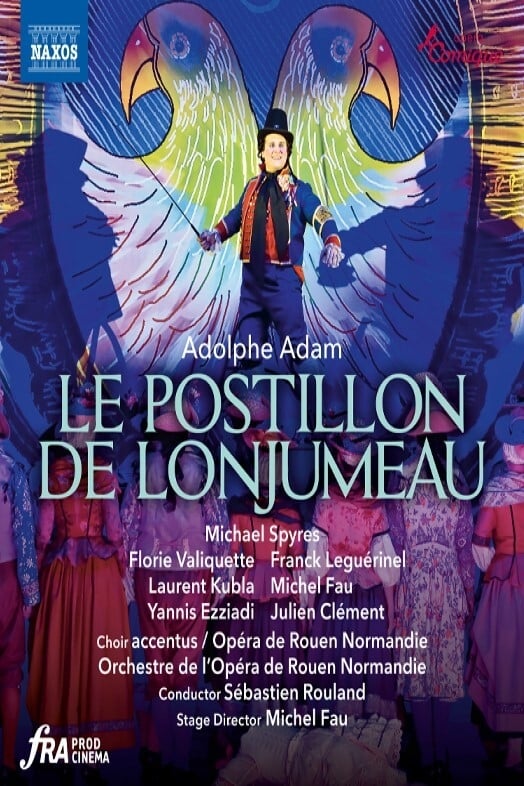
|